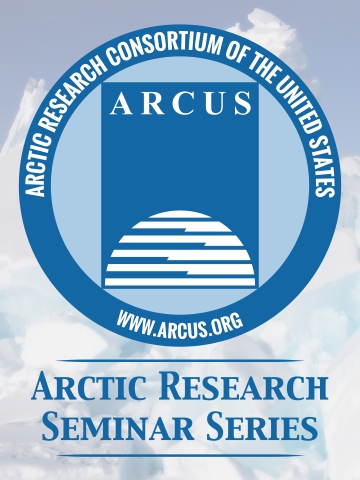ARCUS invites registration for the next Arctic Research Seminar featuring Carolina Behe, the Indigenous Knowledge/Science Advisor for the Inuit Circumpolar Council Alaska (ICC Alaska), titled "Circumpolar Inuit Protocols for Equitable and Ethical Engagement (EEE): Sharing the EEE Protocols - Publication to Implementation". The seminar will be held via Zoom.
Registration is required for this event. Instructions for accessing the webinar will be sent to registrants prior to the event.
Seminar Abstract
Increasingly, Inuit are faced with climate change, resource development, research, wildlife management, and a host of other issues and related discussions. Inuit hold solutions for how to address these challenges and proven sustainable holistic approaches to having a balanced relationship within the Arctic. At the international level, these topics as well as threats to biodiversity, shipping, and other adverse impacts to food security are constantly present. Yet Inuit communities and Knowledge have not been considered equitably. For years, Inuit have raised concerns about the top-down approaches often used by international organizations, researchers, and decision- and policymakers. More recently and because of Indigenous Peoples advocacy, the recognition of Indigenous Knowledge and the need for partnerships, is gaining consideration.
To achieve approaches that are equitable, approaches that respect and recognize Indigenous Knowledge, a paradigm shifts in how work is being done, how decisions are being made, and how policy is developed must take place. We need true equitable and ethical approaches. The 2018 Utqiagvik Declaration mandated ICC to facilitate the development of Equitable and Ethical protocols to aid in this paradigm shift. In June of this year, ICC released the “Circumpolar Inuit Protocols for Equitable and Ethical Engagement” – or EEE Protocols. The EEE Protocols are the result of many years of work and specifically over the past three years, Inuit from across Alaska, Canada, Greenland, and Chukotka have worked together to create this document.
This webinar will share the process of developing the EEE Protocols, the Protocols, and welcome a discussion about how you, the attendees, can implement the EEE Protocols.
Speaker Bio
Carolina Behe is the Indigenous Knowledge/Science advisor for the Inuit Circumpolar Council Alaska. As part of the Inuit Circumpolar Council Alaska team, her work is diverse and ranges from topics within food security and biodiversity to management and policy. Within the past couple of years, Carolina has been part of a team with focus on Inuit food sovereignty. Internationally, Carolina acts as the Inuit Circumpolar Council Head of Delegation on the Conservation of Arctic Flora and Fauna working group board and brings forward ICC’s positions within the Convention on Biological Diversity. Much of ICC’s work within these international foras are focused on ensuring an Inuit perspective and interest are at the table. Additionally, a high amount of focus is placed on the involvement of Indigenous Knowledge and promoting the use of a co-production of knowledge approach to bring together Indigenous Knowledge and science. Carolina's work allows for her to work within two knowledge systems, Indigenous Knowledge and science. Indigenous Knowledge takes a holistic view and sees how many pieces fit together. Working with this understanding and way of knowing, combined with science, will aid in making adaptive ecosystem based decisions.

